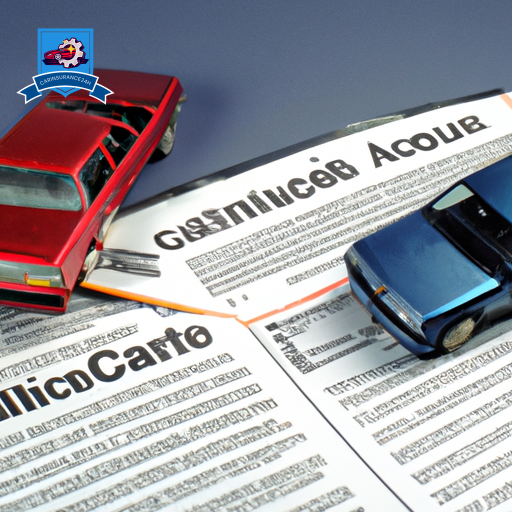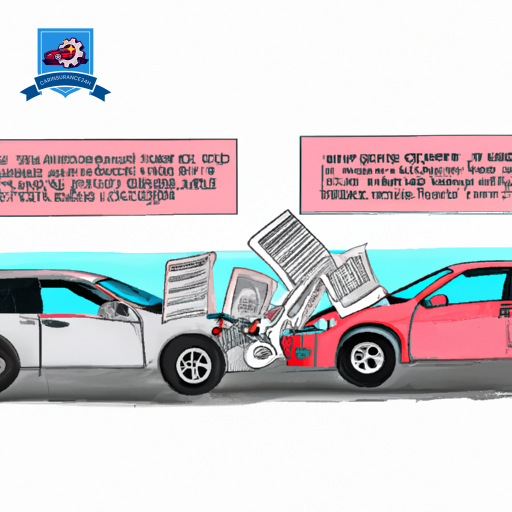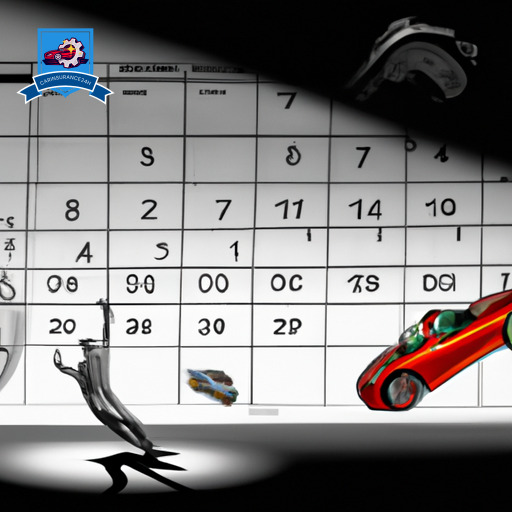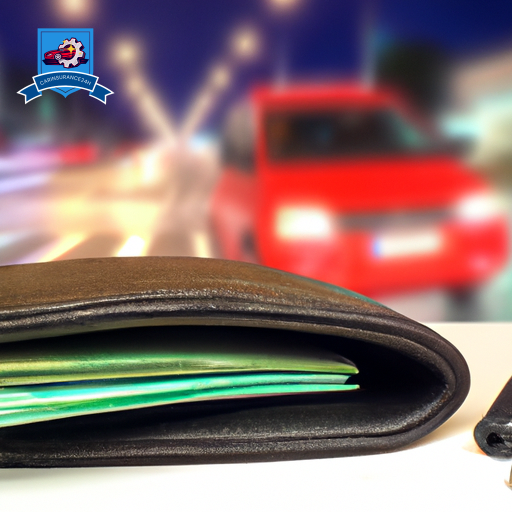In the complex landscape of insurance claims, policyholders often find themselves navigating the murky waters of underinsured motorist claims, questioning whether their insurance company can legally deny such claims. Factors such as policy coverage limits, untimely reporting, disputed liability, inaccuracies in claim details, insufficient evidence, and violations of policy terms stand as potential barriers to claim approval.
Each of these elements introduces a layer of complexity in understanding the conditions under which an insurance provider may rightfully refuse a claim. Unpacking these factors offers insight into the intricacies of insurance policies and the critical nature of adhering to specified guidelines, thereby illuminating the path to successfully securing claim approval under challenging circumstances.
Policy Coverage Limits

Understanding the specific policy coverage limits is essential when dealing with underinsured motorist claims. These limits are the maximum amounts an insurance company will pay under a policy for a covered loss. Policyholders must be acutely aware of their policy’s coverage limits as they directly affect the compensation receivable in the event of an accident involving an underinsured motorist.
Coverage limits are not the only aspect that impacts the outcome of a claim; coverage exclusions also play a significant role. These exclusions are specific situations or circumstances under which the policy does not provide coverage. Common exclusions in underinsured motorist policies may include accidents involving commercial vehicles, incidents deemed intentional, or occurrences under certain activities that the policy does not cover. Understanding these exclusions is critical, as they can lead to the denial of a claim if the policyholder assumes coverage where none exists.
Another critical factor in the equation is deductible amounts. The deductible is the portion of the loss that the policyholder is responsible for paying out of pocket before the insurance coverage kicks in. Higher deductible amounts can lower premium costs but increase out-of-pocket expenses for the policyholder in the event of a claim. It is crucial for policyholders to balance their need for lower premiums with their ability to pay a higher deductible in the event of an accident involving an underinsured motorist.
Failure to Report Timely

The obligation to report an insurance claim within a specified timeframe is a critical component of underinsured motorist coverage. Failure to adhere to this requirement can lead to the denial of a claim, imposing significant financial burdens on policyholders.
It is, hence, essential to understand both the designated reporting time frame and the potential consequences of any delays in notification.
Reporting Time Frame
Timeliness in reporting an underinsured motorist claim is a critical factor that can greatly impact the outcome of your insurance claim process. The insurance policy often stipulates specific time frames within which claim submission must transpire. Failing to adhere to these timelines can result in complications or denials. Understanding the importance of prompt claim submission within the legal deadlines is essential for policyholders.
-
Notification Period: Immediately inform your insurance company following an incident, adhering to the policy’s reporting window.
-
Claim Submission: Submit detailed documentation of the claim as soon as possible, keeping within the insurance company’s prescribed deadlines.
-
Legal Deadlines: Be aware of any state-specific legal deadlines that may affect the claim process, to ensure compliance and avoid forfeiting your coverage rights.
Consequences of Delays
Failing to report an underinsured motorist claim within the prescribed timeframe can lead to significant repercussions, including the potential denial of the claim.
The claim process, designed to evaluate the legitimacy and value of a claim, relies heavily on timely reporting to make sure all evidence is fresh and accurate. Delays not only hinder the collection of essential information but also impact the insurer’s ability to conduct a thorough investigation.
Consequently, this can complicate settlement negotiations, as insurers might question the validity of the claim or argue that the delay has prejudiced their position.
The relationship between timely reporting and the success of settlement negotiations underscores the critical nature of adhering to reporting deadlines in the claim process.
Disputed Liability Claims

In the context of underinsured motorist coverage, disputed liability claims present significant challenges.
The process of proving fault is intricate, often requiring a thorough investigation by insurance companies.
This stage is critical as it determines the direction and outcome of the claim.
Proving Fault Challenges
One of the most significant hurdles in underinsured motorist claims involves the complex process of establishing fault when liability is contested. The challenges that arise are deeply rooted in the intricacies of driver negligence and legal complexities, making the resolution far from straightforward.
To steer through these challenges, consider the following:
-
Evidence Collection: Gathering extensive evidence is important to demonstrating fault. This includes witness statements, traffic camera footage, and accident scene photos.
-
Legal Representation: Seeking professional legal advice can greatly impact the outcome of disputed claims, offering expertise in navigating through legal complexities.
-
State Laws: Understanding the specific nuances of state laws related to underinsured motorist coverage and fault determination can provide essential leverage in disputed liability claims.
Insurance Investigation Process
When a liability claim is disputed, the insurance investigation process commences with a thorough review of all available evidence to ascertain fault accurately. This meticulous procedure is designed to guarantee instances of claim fraud, ensuring that payouts are made only in legitimate circumstances.
The assessment incorporates various elements, such as eyewitness accounts, police reports, and any pertinent surveillance footage. However, a critical aspect of this process is safeguarding against investigator bias, which could unduly influence the outcome. The objective is to maintain an impartial stance throughout the investigation to secure a fair and just resolution.
Inaccurate Claim Details

Accurate claim details are critical for the assessment of underinsured motorist insurance claims, with inaccuracies often leading to denials. The foundation of a valid insurance claim rests on the precision and truthfulness of the information submitted. When inaccuracies appear, they trigger concerns of potential claim fraud and documentation errors, both of which have a major impact on the insurance company’s decision-making process.
To navigate the complexities of submitting an accurate claim, consider the following key points:
-
Verification of Incident Details: Every aspect of the incident reported must be thoroughly verified for accuracy. Misreporting, whether intentional or accidental, can raise suspicions of claim fraud. This includes the time, location, and circumstances of the incident. Discrepancies between the claimant’s account and the factual evidence can lead to claim denial.
-
Accuracy in Documentation: Ensuring that all documents submitted, such as police reports, medical records, and repair estimates, are free from errors is crucial. Documentation errors can misrepresent the severity of damages or injuries, affecting the assessment of the claim’s validity.
-
Honesty in Claim Submission: Honesty serves as the best policy when filing a claim. Exaggeration of damages or injuries not only constitutes claim fraud but also undermines the trust between the claimant and the insurer. Transparency in the submission process fosters a cooperative relationship, facilitating a smoother claim review.
Lack of Evidence

Gathering sufficient evidence is paramount in substantiating an underinsured motorist insurance claim, yet many claimants find their submissions denied due to a lack of compelling proof. The process of evidence gathering serves as the critical foundation for establishing the validity of a claim. It involves collecting various forms of documentation that can collectively paint a clear picture of the incident, the extent of damages incurred, and the liability of the underinsured motorist.
Key components of evidence may include, but are not limited to, police reports, medical records, photographs of the accident scene, and damage to the vehicle. These elements provide objective data that support the claimant’s narrative. However, one of the most persuasive forms of evidence comes from witness statements. Witnesses can offer unbiased accounts of the incident, providing insights that physical evidence alone may not reveal. Their testimonies can corroborate the claimant’s version of events, making their inclusion in the evidence gathering process invaluable.
Despite the availability of these evidence sources, the failure to compile a thorough and compelling dossier often leads to claim denials. Insurance companies assess claims based on the weight and credibility of the presented evidence. A claim lacking in substantive proof or possessing gaps in the narrative invites skepticism, undermining its legitimacy. Consequently, the responsibility falls on the claimant to make sure that their evidence gathering is thorough and meticulous. This diligence not only strengthens their position but also greatly enhances their prospects of a favorable outcome in their underinsured motorist claim process.
Violation of Policy Terms

Violation of policy terms represents a fundamental reason for the denial of underinsured motorist insurance claims. Insurance policies are legal contracts between the insurer and the insured. When policyholders fail to adhere to the terms of these contracts, insurers may refuse to pay out claims. This enforcement guarantees that the risks covered by the policy are well-defined and managed according to the agreement made at the outset of the policy.
Here are three common ways policy terms can be violated, leading to claim denial:
-
Non-Payment of Premiums: Regular premium payments are essential for keeping an insurance policy active. If a policyholder fails to make these payments, the policy may lapse, and coverage becomes void. Insurers might adjust premiums based on various factors, including changes in risk profile or inflation. Failure to pay the adjusted premiums can result in a lapse of coverage.
-
Misrepresentation or Fraud: Providing false information or deliberately omitting relevant facts during the application process or after a claim can result in a denial. Insurers rely on accurate information to assess risk and determine appropriate premium levels. Misrepresentation can lead to incorrect premium adjustments or unintended coverage exclusions.
-
Ignoring Coverage Exclusions: Every insurance policy has exclusions that specify scenarios where coverage does not apply. Policyholders who fail to understand or intentionally ignore these exclusions might find their claims denied. Common exclusions might relate to specific behaviors, such as driving under the influence of alcohol or using the vehicle for unauthorized commercial activities.
Understanding and adhering to policy terms is essential for guaranteeing that underinsured motorist claims are honored. Violations can lead to disputes, claim denials, and financial difficulties for the policyholder.
Frequently Asked Questions
How Does My State’s Laws Affect the Processing and Outcome of Underinsured Motorist Claims?
State regulations greatly influence the processing and outcome of underinsured motorist claims, particularly through defined coverage limits. These legal parameters dictate the extent of compensation available, ensuring claims align with jurisdictional insurance mandates.
Can Pursuing Legal Action Against My Insurance Company Impact My Premiums or Ability to Obtain Future Coverage?
Pursuing legal action against your insurance company may lead to policy cancellation or affect premium calculation, as seen in hypothetical cases. This action might influence your future coverage capabilities and financial obligations within the insurance landscape.
Are There Specific Types of Damages or Injuries That Are Typically Not Covered Under Underinsured Motorist Claims?
Underinsured motorist claims typically exclude damages or injuries exceeding policy limits and those outlined in exclusion clauses, such as intentional acts or use in certain unlawful activities, underscoring the importance of understanding one’s insurance policy thoroughly.
How Do Insurance Companies Determine if Another Driver Is Considered Underinsured in the Context of My Claim?
Insurance companies assess whether a driver is underinsured by comparing the driver’s coverage limits against the claimant’s damages and reviewing policy exclusions. This evaluation determines if the claim exceeds the at-fault party’s insurance provisions.
What Steps Can I Take if I Disagree With the Valuation of My Claim Provided by the Insurance Company?
If dissatisfied with your claim’s valuation, enhance your position by meticulously compiling claim documentation. Employing effective negotiation strategies can pivot the outcome in your favor, ensuring a fair reassessment of your insurance claim’s worth.










